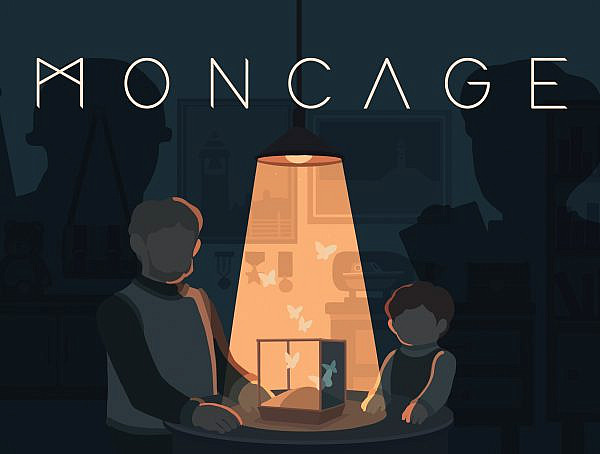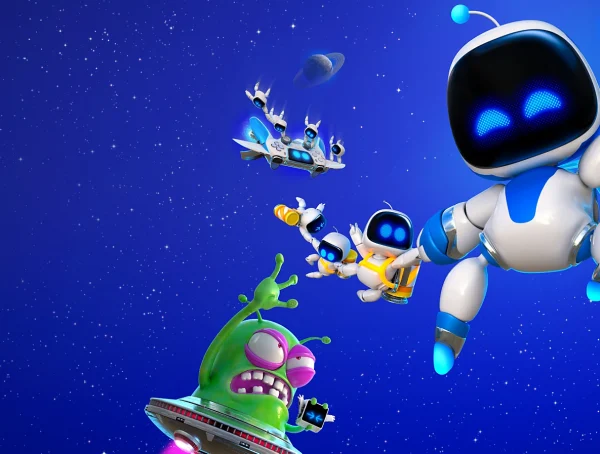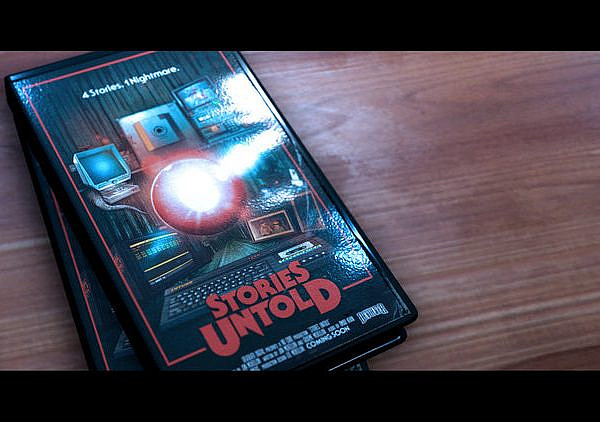Detroit: Become Human takes place in the metropolitan city of Detroit in 2038, where the introduction of androids has made the city flourish – for now. Each of the three playable main characters has their own story to tell, which will change the future for the characters themselves and the city of Detroit.
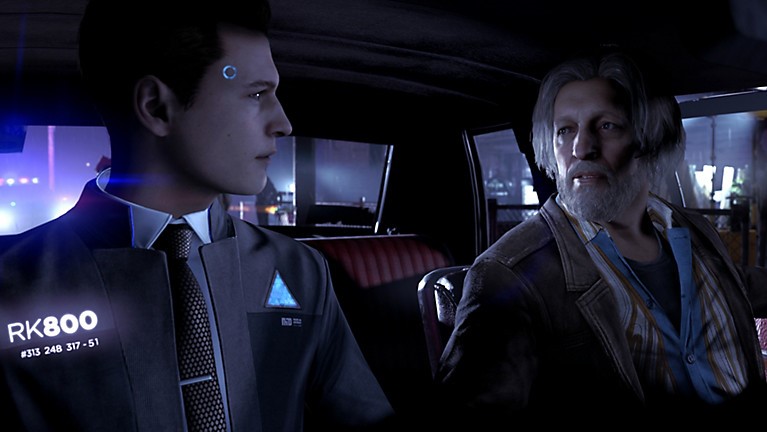
Connor on the left with his work partner Hank on the right
We’re first introduced to Connor, Cyberlife’s most advanced prototype android, tasked to investigate crime scenes and disturbances across Detroit with Lieutenant Hank Anderson. They try to track down deviants, androids that have broken their programming, abandoned their owners or turned to crime, while pondering their feelings towards the nature of their job. Depending on the player’s choices Connor can either remain analytical or begin to feel empathy.
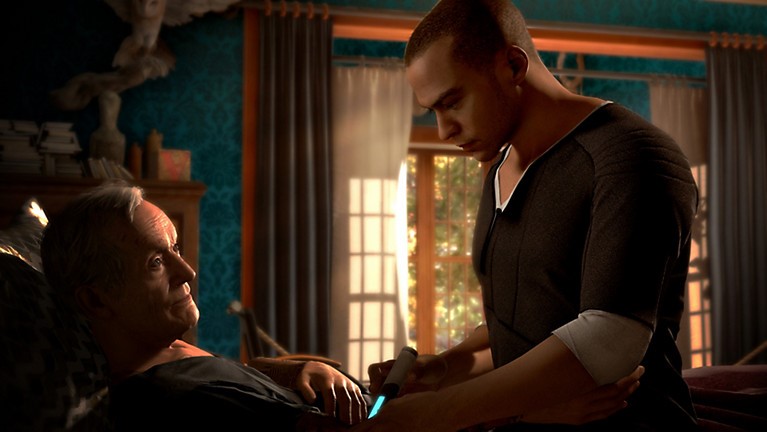
Markus on the right with his owner Carl on the left
As you continue playing the game, you’re introduced to Markus, a caretaker android owned by the paraplegic painter Carl Manfred. After tragic events Markus finds himself a deviant and facing a difficult decision: will he walk down the pacifist route, or will he use violence to get what he wants? Out of the three playable characters, the choices he must face might have the largest impact on how the story could end.
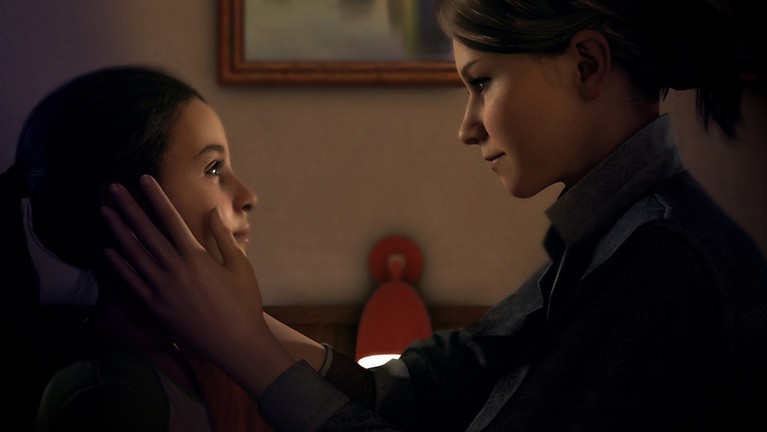
Kara on the right, with Alice, the girl she tries to protect, on the left
We’re also introduced to Kara, a newly-manufactured android, who has sworn to protect the daughter of the family who bought her, Alice. After she breaks free from her programming, she must face many difficult situations to try to keep her safe. While Connor’s path felt the most heartwarming one out of the three, Kara’s was, given the right circumstances, able to make me cry.
While the game looks and sounds great, providing movie-like experiences with the cutscenes between the chapters of the game, and making the player really feel for the characters, the gameplay itself can be problematic. The camera doesn’t always turn as you’d like it to turn, and the controls needed especially for the occasional quick-time events can require such high levels of dexterity that by the time you manage to complete that part the story has already progressed in an unexpected way. The game, however, allows you to replay parts of the game, so you can go back and try again, either by making the same choices you previously made or by trying a different route with different choices.
The game was definitely worth my time, as I began to get really attached to the characters. I’d recommend the game to anyone who’s interested in games from this genre, but I’d also recommend others to give it a try for its immersive storyline and audiovisual experiences.
Game info
Publishers: Sony Interactive Entertainment, Quantic Dream (PC)
Developer: Quantic Dream
Director: David Cage
Platforms: PlayStation 4, Microsoft Windows
Release date: 25 May 2018 (PlayStation 4), 12 December 2019 (Microsoft Windows)
Genre: Adventure
PEGI: 18+
Screenshots from https://www.playstation.com/en-us/games/detroit-become-human-ps4/ and https://www.playstation.com/fi-fi/games/detroit-ps4/
You might also like
More from Game Reviews
Assassin’s Creed Odyssey- The sea breeze carries home and adventure
Let us sail the seas and scale the mountains of Greece together!
Animal Crossing: Pocket Camp but without the microtransactions?
Pocket Camp Complete is a cute and relaxing mobile game that offers the full experience with a one-time purchase.
Stories Untold – An Experimental Psychological Horror Adventure
Stories Untold is a narrative-driven horror adventure game and a truly remarkable take on the genre. The four episode anthology …







